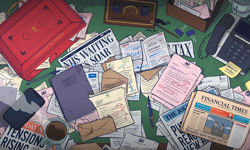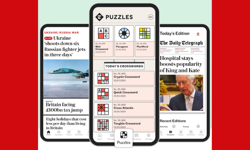
The announcement coincides with the Mirror’s Annual Climate issue, which this year focuses on “Vanishing UK,” highlighting not only the physical land at risk of disappearing but also iconic aspects of our natural heritage, from spring daffodils to wild hedgehogs.
In the print edition, the newly dubbed Weather & Climate section will now feature daily stats from the Met Office putting the day’s weather in historical context, comparing current temperatures to 1961-1990 Central England Temperature figures. The page will also feature regular fact boxes giving context to extreme weather, new records and other trends.
The new guidelines include tips around how to make the scientifically-backed connection between extreme weather and the climate crisis clear, not only for heatwaves but for other dangerous events such as hurricanes, forest fires, flooding and drought.
Met Office Climate Scientist and Professor at Bristol University Dr Lizzie Kendon said: “The science is clear – our climate is changing and this will have an impact on the weather we experience. Climate science can often seem overwhelming and complicated, so a key role of climate scientists is to communicate what this means for us all in terms of the impacts on our daily lives.
“Our projections show that UK winters will become warmer and wetter on average, while summers are projected to become hotter and are more likely to be drier. Extreme events are also likely to become more frequent, summer maximum temperatures of over 40°C are possible within the next few decades and by 2050, heatwaves like that seen in 2018 could happen every other year. Although summer rainfall is likely to be lower overall in future, when it does rain it is expected to come in shorter, sharper bursts of more intense rainfall, making flash flooding more likely.”
Editor-in-Chief Alison Phillips commented: “Every year we focus our energy on a big climate change special edition in print and digital which often looks to the future. But the climate crisis is here in the United Kingdom right now, in big and small ways, and it’s our job to tell that story every single day.
“Over the pandemic the media has helped to give the world a crash course in virology, and now protecting ourselves from the climate crisis will call for a crash course in climate science.
“We all know how Brits love to talk about the weather – now, unfortunately, climate change is a part of that conversation.”
Keep up-to-date with publishing news: sign up here for InPubWeekly, our free weekly e-newsletter.












